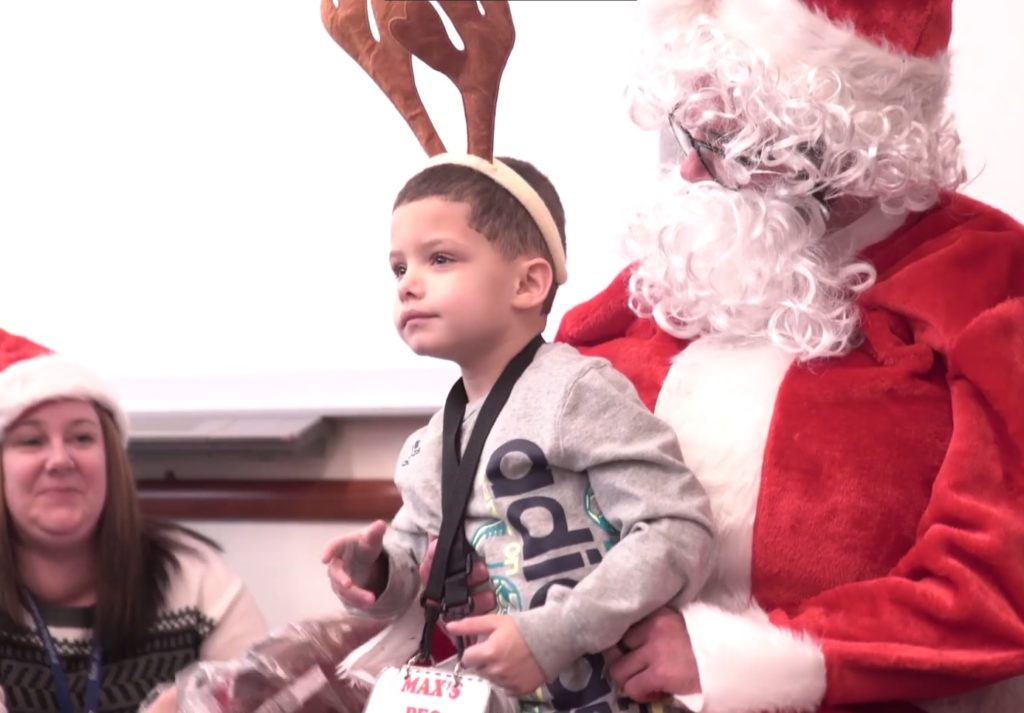
Children with autism take centre stage at the holiday concert
For most children with severe autism, performing in a holiday pageant or sitting on Santa’s knee is just not possible. The loud noises and crowds associated with these events can be overwhelming and, as a result, this group of children often misses out on such milestones.
“In a typical Christmas concert there are many people, loud noises, bright lights, very unpredictable things happening, and this can be very overwhelming to the senses of children with autism.”
That’s not the case in the Intensive Behavioural Intervention Program (IBI) at Ron Joyce Children’s Health Centre (RJCHC). This specialized program in the Autism Spectrum Disorder Service caters to children who need intensive therapy to develop life skills that will help them learn in a mainstream school environment. The program’s annual holiday concert ensures that the children are able to experience these important moments.
“Children in our IBI program have autism toward the severe end that affects the way that they learn,” says Dr. Caroline Roncadin, clinical director of the Autism Spectrum Disorder Service. “In a typical Christmas concert there are many people, loud noises, bright lights, very unpredictable things happening, and this can be very overwhelming to the senses of children with autism.”
Changes to minor elements of the typical concert experience make the event more manageable. The children spend time practicing actions to short songs that they perform in small groups with their therapists. The lights are dimmer, the music is quieter, and they are able to move around and express themselves.
For Don Fletcher, who watched his son Max perform in the concert for the first time, it was rewarding to see him enjoy the experience. “He got most excited at the end when everybody was clapping. In the past, that would have been something that would have upset him,” Fletcher says. “It was a pleasure to see that when people were clapping, he actually got excited by it.”
After his performance, Max joined the group of children waiting for a visit with Santa. He was a bit timid at first, but “Santa” knew how to coax a smile out of him. That’s because one of the program’s therapists plays Santa for the day. He understands each of the children’s personalities and is able to cater the experience to their needs. For many of the kids in this program, this was their first time seeing Mr. Claus, because the mall Santa experience is overly stressful.
“It was a pleasure to see that when people were clapping, he actually got excited by it.”
“He knows all of their unique individual needs and is supportive of them to have as positive an experience as possible,” Dr. Roncadin says. “It’s just fantastic to see the children in our program having a very typical experience.”
